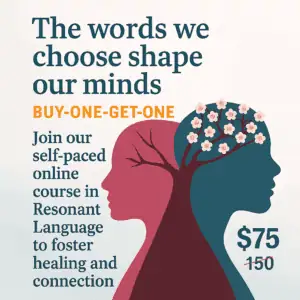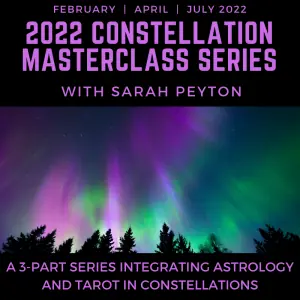Description
What does disgust have to do with boundaries and power?
Many of us have been taught that it is impolite and rude to know what disgusts us and what doesn’t. We are told that we are being good children if no one knows what kinds of vegetables or touch or questions are too much or wrong for us (or that we don’t like). When we tell children that they should be seen and not heard, we’re asking them to repress their inner voice of truth and for many people that prohibition is never lifted. When we reclaim our body’s deep knowing about what it wants and doesn’t want, we discover an entirely natural and effortless relationship with boundaries. In its healthiest manifestation, disgust is the shoreline of our body’s authentic and alive experience of what it loves and desires–it tells us who we want to be with and what we want to do, it tells us what we want to eat, it tells us how we want to work, it tells us what we want to create. It lets us discover what kind of privacy works for us, and what kinds of public expression nourishes us and our relationship with the world. The discovery of our healthy disgust is a discovery of our healthy and authentic joy. And this particular work takes us directly into what we really want, when it comes to sexual expression and non-expression.
In emergent constellations, we learn that many of us have been taken into our parents’ bedrooms and that the door between ourselves and our parents’ private explorations needs to be closed, and our parents need to take responsibility for their own lives. We’ve been made our parents’ spouses, friends, therapists, parents, or exes, when what we really need is to first be our parents’ children, and then to grow into being adults who have their own separate lives. Our passions, interests, and desires do not belong to our parents, and the creative expression that’s a natural outgrowth of authentic emergence is ours and ours alone. Healthy disgust can help us find the boundary between what is ours and what belongs to others. As we claim this space in which we get to exist, we also discover our strength and power and relationality: our full range of movement to live lives that are fully our own, and to join with others and create the families and friend groups where we get to both be authentic and belong.
Where?
The course will meet via zoom. We welcome participants from all time zones who wish to learn asynchronously for some or all of the sessions. Recordings and visuals will be made available to those who are registered for the live program (typically available within 72 hours of the live session).
When?
The schedule will be as follows:
Friday, November 7, 2025: 9am-12pm, 1pm-3pm
Saturday, November 8, 2025: 9am-12pm, 1pm-3pm
Sunday, November 9, 2025: 9am-12pm, 1pm-3pm
All times are in the Pacific Time zone. (To convert to your time zone, please click here)
What to Expect:
Each day we alternate between short lectures on neuroscience and constellation concepts with mini-constellations to explore and practice the concepts, and then we do large group constellations. If you’re a visual learner you can imagine small islands of didactic learning, surrounded by slightly larger islands of small-group learning, and then interspersed with large, full-group constellations. Small group work will be done in small groups or dyads via breakout groups on zoom.
Constellations facilitated by Sarah will alternate with Constellations facilitated by Masterclass participants, interspersed with large and small group learning. Both being a facilitator and being a seeker happen by lottery. Only participants who have attended other master series sessions with Sarah will be eligible to be facilitators. Not all participants will have a chance to be a seeker or a facilitator.
What You’ll Learn:
Over this 3-day, 15-hour workshop participants will:
- Discover the multiple layers of disgust and their contribution to clear yes’es and no’s.
- Release contracts that prevent us from fully inhabiting and enjoying our bodies, their desires, our sexuality/emergence and knowing our edges.
- Work with mini-constellations that support the healing of the relationship between boundaries and power, so that we can fully own our own strengths.
- Look for relic-patterns from abuse experiences that block our authentic “no’s.
- Work with the foundational skills of constellation facilitation.
Improve constellation facilitation confidence, humility and practices for general practice. - Have the opportunity to participate in a large-group constellation facilitated by Sarah.
- Have the opportunity to participate in a large-group constellation facilitated by a student and supported by Sarah.
- Have multiple opportunities to be in lotteries to be a client or to student-facilitate large group constellations.
Who Is This Course For?
These sessions are intended for people who are interested in learning about constellation facilitation and how constellation work transforms and heals. Both experienced and new facilitators are welcome. Student facilitators will have opportunities for supervision and support from Sarah Peyton. Sometimes, personal growth and transformation happen coincidentally, but personal work for participants isn’t the main focus of the offerings in the masterclass series.
Please Note:
- Your tuition payment is non-refundable (but it is transferable).
- This workshop will be recorded for those who want to learn asynchronously for some or all sessions.
- This work is not therapy and is not a substitute for therapy. If you have a sense that you would be destabilized by yourself or others speaking about difficult events, then this course may not be for you. While we hope that the processes and information that we share can be of use in your journey, we do not have the resources to support extreme psychological difficulties.




